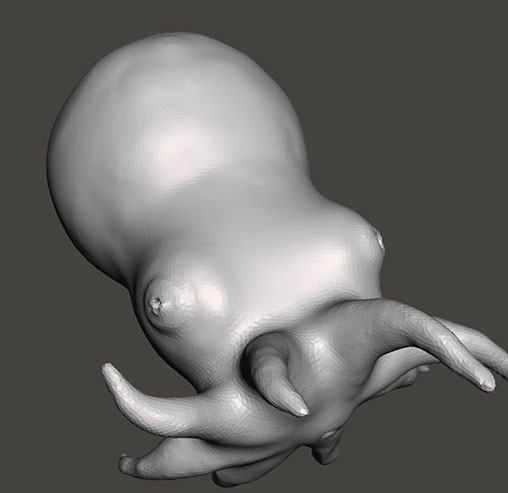Species: Octopus (Octopoda) Larvae
Student: Julia Lovelace
Information:
As adults, octopus are important bottom dwelling creatures that prey mostly on mollusks and crustaceans and scientists have been researching them and their intelligence for years. It has been very difficult for scientists to gather research on octopus larvae because they are picky eaters. Octopus raised in captivity typically die of starvation within a few days, there are theories to explain this phenomenon but as of yet no solution has been found.
The ocean is an amalgamation of mysteries, octopus larvae included. Zooplankton as a whole are an extremely important part of the food chain as they consume phytoplankton and serve as "intermediaries for nutrients [and] energy transfer between primary and tertiary trophic levels (Gajbhiye,1)." They are able to turn inorganic carbon into organic matter through primary production which is necessary for the success of aquatic ecosystems (Gajbhiye,1). Although we do not know exactly what octopus larvae consume, it can be assumed from current research that they have evolved to have specific plankton diets. Octopi are an important nutrient for other species making them an integral part of the aquatic food chain.
